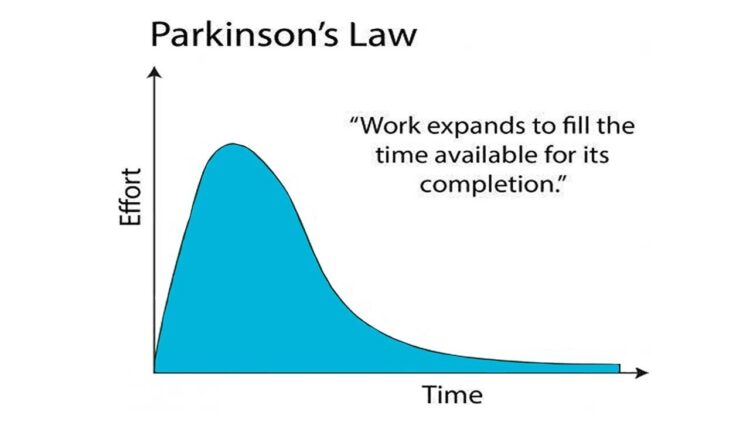In many ways, an online school is just like a traditional brick-and-mortar institution. Choose the right one, and it will feature dedicated, qualified instructors, secondary school diploma credit courses, and – yes – even course exams.
But online schools differ in a few critical ways. For starters, excellent online schools like OES run on a “self-paced” model, meaning students allocate their time and efforts according to their unique needs. Secondly, perhaps obviously, online learning is remote, which means students are ultimately responsible for keeping their goals, assignments and studies on track.
These differences require a slightly different approach when it comes to crafting healthy study habits. To improve one’s chance of success, a student should observe a few productive remote study habits. In this post, let’s take a closer look at a few of those habits.
Page Contents
1. Set S.M.A.R.T Goals

img source: unsplash.com
Goal-setting is the linchpin of a successful tenure in online classes. But goals aren’t just the pot of gold at the end of the rainbow; they should also contain precise, thoughtful roadmaps for achieving said goals. That’s where the S.M.A.R.T goal system comes in handy. This system allows students to follow observable, delineated benchmarks on their way toward achieving academic success.
Here’s how the S.M.A.R.T goals break down:
- Specific: Students should make their goals as specific as possible. Avoid vague goals like “be the smartest person around,” and opt instead for well-defined achievements like “An A grade in 11 English” or “Completion of College Math before January of next year.”
- Measurable: Determine the best way to measure your goals. Will it be marks-based or according to a self-improvement scale?
- Attainable: Unattainable goals can leave you feeling frustrated and hopeless. Instead, choose goals that you have a reasonable chance of achieving.
- Relevant: Often, goals are a stepping stone to other, larger goals. If your ultimate goal is to gain admission to a university science program, for instance, ensure that your “sub-goals” are relevant to your progress.
- Time-Based: Give your goals several deadlines; that way, you can keep yourself on track.
Goal-setting is a critical first step on your way toward crafting effective study habits. Before you crack open your books (or online reading material, to be specific), give thought to how you’ll achieve success.
2. Use Time Management Tools
There are plenty of time management tools available. They may be as simple as an apple timer rested next to your computer, or as complex as a time management app that meticulously tracks your progress.
Find out what works best for you. Huffington Post has a helpful roundup of winning time management habits, including creating a priority-based schedule and utilizing note-taking apps as you work. If you have time, peruse that article for further ideas.
3. Consider Parkinson’s Law

img source: timeflies.us
Parkinson’s Law states that: “work expands so as to fill the time available for its completion.” That’s quite a mouthful, but what does it mean?
Essentially Parkinson’s Law describes a common phenomenon about the way most people view work. If you give yourself eight hours to read a chapter, you will take eight hours to read that chapter. Alternatively, if you allot a reasonable one-and-a-half hour to read the material, you will likely finish in that time.
To increase productivity, therefore, try shortening your allotted study chunks and see what you can accomplish.
4. Keep Your Study Space Tidy
Since the dawn of time, parents have scolded their kids for not cleaning up their rooms. As it turns out, they have a great point.
According to psychologists, clutter can make it more difficult to focus. Because clutter adds excess visual stimuli to your sightline, it forces your brain to work overtime in the processing department. This may lead to confusion, stress and – in extreme cases – feelings of hopelessness.
The takeaway here: keep your study space tidy!
5. Get Creative with Your Notes

img source: unsplash.com
The section above discussed what types of visual stimuli to avoid. But visual cues can also be helpful as mnemonic devices.
When you take notes, break out the color, and get creative with your visuals. Visual note-taking involves including quick doodles, color-codes, and mind maps in your notes, all of which may help you remember the material better. If you are note-taking on a computer for an online school, make use of the highlight and “draw” options on your word processor.
6. Don’t Hesitate to Ask for Help
An excellent online school will offer lots of support. You have a passionate teacher to guide you through the course materials, as well as access to tutoring services. Make use of these resources!
One of the most effective study habits a student can learn is that asking for help is neither shameful nor difficult. It is easy to do and demonstrates your eagerness to learn.
7. Keep Well Rested and Well Fed

img source: unsplash.com
Like it or not, your brain is attached to a body. Taking care of one means taking care of the other. If you skip meals, continually eat junk food and get insufficient sleep, your body and brain pay the consequences.
Therefore, part of an effective study regimen is taking care of your physical needs. Eat healthy foods according to a set schedule and try to maintain a consistent sleep schedule. Both diet and sleep have been linked to focus and brain health.
8. Don’t Forget to Take Breaks
Thus far, this article has expounded on the many ways to be more productive. But here’s a tip that may sound counterintuitive: Take breaks!
Your brain needs rest. It needs periods of low activity or variated concentration if it wants to continue processing and retaining information. Somewhat paradoxically, studying for long periods without a break may negatively impact how much you learn. When you are setting your S.M.A.R.T goals and programming your time management tool, leave room for sporadic breaks.
Whether you’re attending summer school online, retaking an upgrade course, or taking a full load of fall courses remotely, follow these tips to better your chances at academic success.





